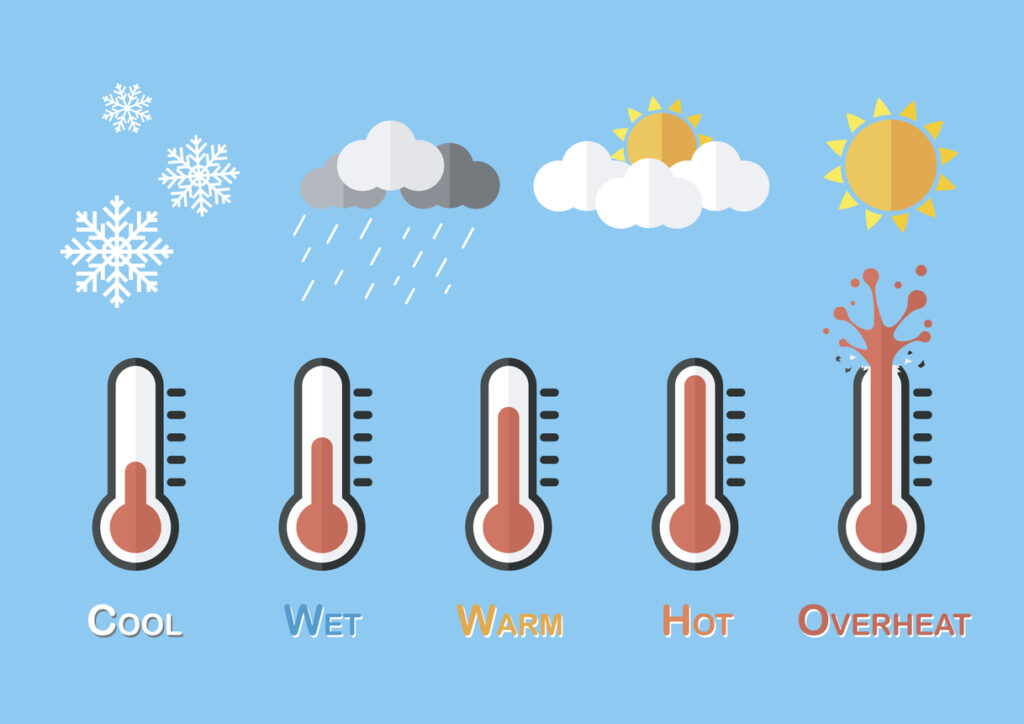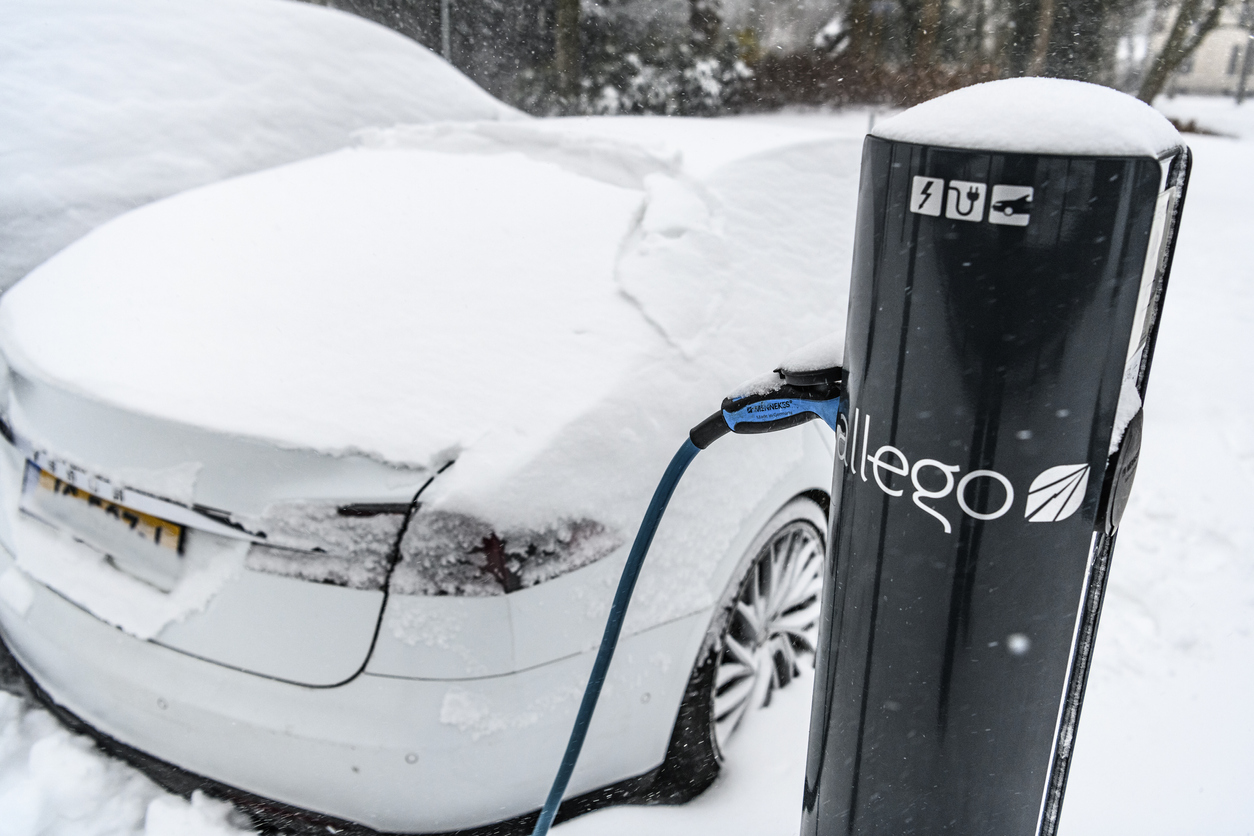Table of Contents
Electric Car Battery Vs Weather
The global shift towards electric vehicles (EVs) brings new challenges, including understanding the impact of severe weather on electric car battery efficiency. As governments and industries strive to reduce carbon footprints, EVs play a pivotal role in the sustainable future of transportation. This comprehensive blog by Renovar helps you delve into the intricate relationship between severe weather conditions and the performance of electric car batteries.
Electric Car Battery Basics
The electric car’s essential core, the battery, functions as a reservoir for the energy that propels the vehicle’s motor. Typically utilizing lithium-ion technology, similar to laptops and smartphones, these batteries epitomize the technological convergence in electric cars. Measured in kilowatt-hours (kWh), the battery’s capacity directly determines the car’s range. A higher kWh rating translates to an extended driving range on a single charge, addressing a crucial concern for prospective electric vehicle owners.
In tandem with capacity, charging speed, gauged in kilowatts (kW), stands as a pivotal metric. A higher kW rating ensures swift recharging, accommodating the demands of fast-paced lifestyles. Despite the inevitable battery degradation over time, these lithium-ion powerhouses can sustain their efficiency for many years with proper care.
The Role of Temperature in EV Batteries
The performance of the batteries in electric cars is greatly influenced by temperature. Severe temperatures, whether hot or cold, can significantly affect the chemical reactions within the battery cells. Cold weather can lead to reduced energy capacity, slower charging rates, and challenges for regenerative braking systems. On the other hand, high temperatures can accelerate battery degradation and pose thermal runaway risks.
Cold Weather Challenges
Cold weather presents unique challenges for electric car batteries. The temperature decrease affects the electrolyte’s fluidity, increasing internal resistance and reducing conductivity. This results in decreased battery efficiency, impacting both range and charging speed. Manufacturers address these challenges through innovative thermal management systems.
Hot Weather Concerns
Conversely, hot weather also poses concerns for electric car batteries. Elevated temperatures accelerate chemical reactions, contributing to faster battery degradation. Thermal management becomes critical to prevent overheating, and advancements in cooling systems play a pivotal role in maintaining battery health during scorching conditions.

| Weather Condition | Cold Weather Challenges | Hot Weather Concerns |
|---|---|---|
| Effect on Battery | Decreased fluidity of electrolyte, leading to increased internal resistance | Accelerated chemical reactions contribute to faster battery degradation |
| Impact on Conductivity and Efficiency | Reduced conductivity and increased internal resistance result in decreased battery efficiency | High temperatures may compromise battery health, necessitating effective cooling systems |
| Specific Challenges | Decreased range and charging speed due to reduced efficiency | Risk of overheating, the potential impact on battery longevity and performance |
| Manufacturer Solutions | Innovative thermal management systems address challenges posed by cold temperatures | Advancements in cooling systems play a pivotal role in maintaining battery health |
Technological Solutions
Despite the challenges, the electric vehicle industry is actively developing technological solutions to mitigate the impact of severe weather on battery efficiency.
For Cold Weather Challenges
- Battery Heating Systems: Implementing electric battery heating systems to maintain optimal operating temperatures in cold weather. These systems ensure the electrolyte maintains sufficient fluidity, reducing internal resistance and enhancing conductivity.
- Thermal Insulation: Integrating thermal insulation materials in battery packs minimises heat loss in cold conditions. Insulation helps retain the battery’s warmth, preserving its efficiency and mitigating the impact on range and charging speed.
- Smart Thermal Management: Development of intelligent thermal management systems that adapt to external temperatures in real-time. These systems optimise heating strategies to balance the need for efficient performance and extended battery life.
For Hot Weather Concerns
- Enhanced Cooling Systems: Incorporation of advanced cooling systems, such as liquid cooling, to dissipate heat efficiently in hot weather. These systems prevent overheating, maintaining the battery within an optimal temperature range to safeguard against accelerated degradation.
- Phase Change Materials: Use phase change materials within the battery pack to absorb and release heat. This innovative solution helps regulate temperature fluctuations, providing a more stable thermal environment for the battery.
- Active Thermal Management Algorithms: Implementation of algorithms that actively manage the thermal profile of the battery. These algorithms optimise cooling mechanisms based on real-time conditions, ensuring effective heat dissipation and preserving battery health.
- Materials Engineering: Exploration of heat-resistant materials in battery construction to withstand high temperatures. Materials with improved thermal stability contribute to the battery’s longevity, even in challenging hot weather scenarios.
Tips for EV Owners
For electric vehicle owners, adopting practices to mitigate the impact of severe weather on battery efficiency is essential.

Cold Weather Tips
- Pre-Condition for Warmth: Warm up the battery before driving.
- Strategic Charging: Charge more frequently in cold climates.
- Battery Warmers: Consider using battery warmers.
- Limit Heater Use: Use seat heaters; limit cabin heater use.
Hot Weather Tips
- Park in the Shade: Park your EV in the shade to avoid direct sunlight.
- Optimize Charging: Charge during cooler hours.
- Smart Charging: Schedule charging during off-peak times.
- Monitor Temperature: Check battery temperature regularly.
- Plan Charging Breaks: Plan routes with charging stops for cooling.
Conclusion
In conclusion, the impact of severe weather on electric car battery efficiency is a multifaceted challenge. As the EV industry continues to evolve, advancements in technology and practices offer promising solutions. Electric car batteries are at the forefront of sustainable transportation, and understanding their behaviour in different weather conditions is crucial for widespread adoption.
With ongoing research and innovation, the future holds exciting possibilities for enhancing the resilience of electric car batteries, making them a reliable and efficient choice for eco-conscious drivers. Choose sustainability, choose Renovar – Pioneering the future of lithium-ion battery recycling. Reach out to us for environmental friendly battery disposal.
FAQ
How does cold weather affect electric car battery efficiency?
Cold weather reduces battery fluidity, increasing internal resistance and impacting efficiency, range, and charging speed.
What challenges do hot temperatures pose to electric car batteries?
Hot weather accelerates chemical reactions, contributing to faster battery degradation and emphasizing the need for effective thermal management.
How can owners optimize electric car battery performance in winter?
Pre-condition the battery, strategically plan charging sessions, use battery warmers, and limit excessive heater usage.
What steps can be taken to preserve electric car batteries in hot climates?
Park in the shade, charge during cooler hours, use smart charging, monitor battery temperature, and plan routes with charging breaks.
Are there technological solutions to weather-related challenges for EV batteries?
Yes, manufacturers employ innovative thermal management systems to address cold and hot weather challenges, enhancing battery resilience.


